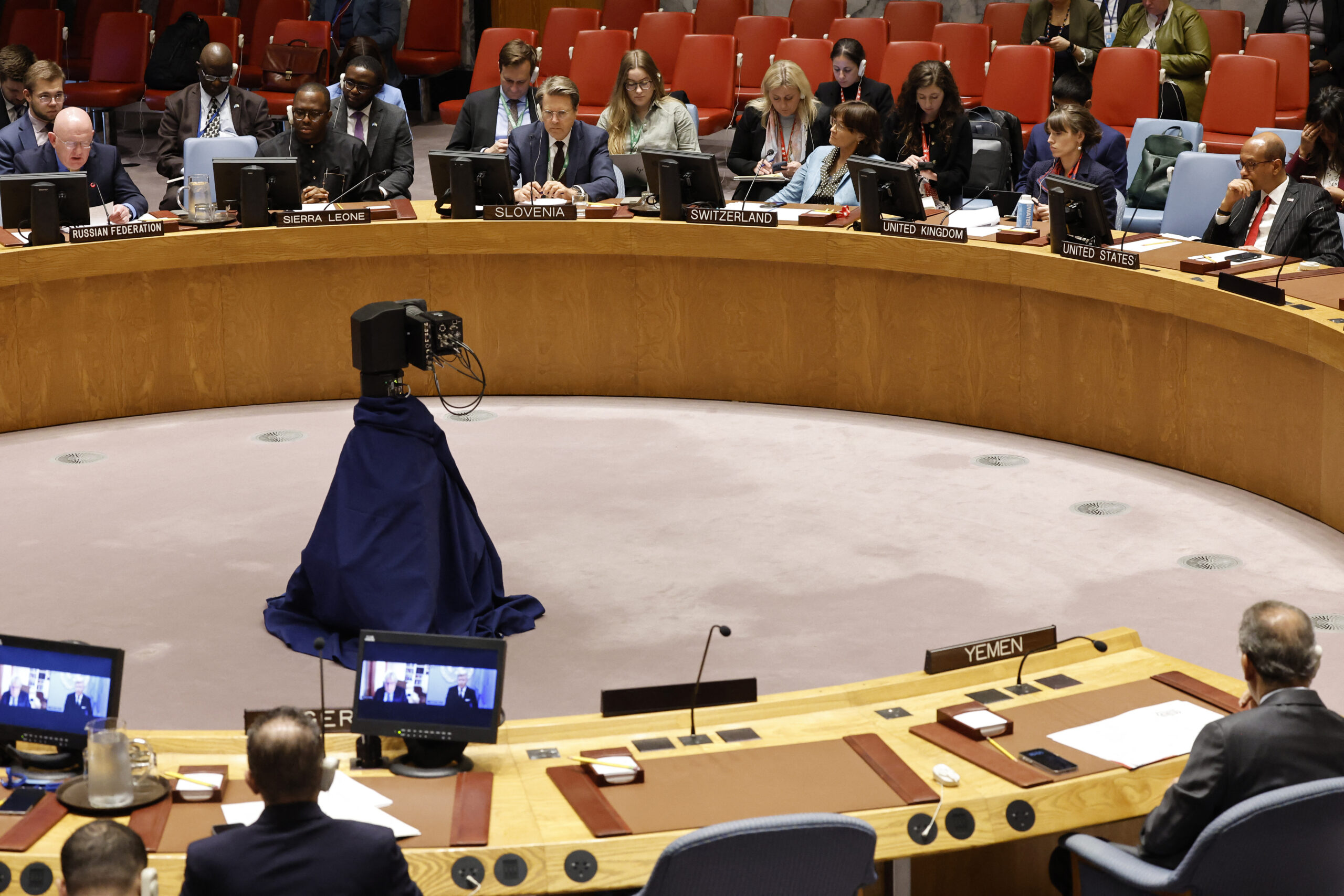Russia’s bid to counter weapons in space fails at UN Security Council

Members of the United Nations Security Council listen as Russian permanent Ambassador to the United Nations Vassily Nebenzia speaks during a meeting on the war in Gaza at the United Nations headquarters on May 13, 2024, in New York City. Michael M. Santiago/Getty Images/AFP (Photo by Michael M. Santiago / GETTY IMAGES NORTH AMERICA / Getty Images via AFP)
UNITED NATIONS, United States — The UN Security Council on Monday rejected a Russian draft resolution to counter military activity in space, as countries questioned Moscow’s sincerity after it vetoed an American text in April against nuclear proliferation in the final frontier.
The Russian text called on all states to “take urgent measures to prevent for all time the placement of weapons in outer space and the threat or use of force in outer space.”
It received seven votes for – including from China – and seven against, including from the United States, United Kingdom, and France, with Switzerland abstaining.
US envoy Robert Wood said the move was “the culmination of Russia’s campaign of diplomatic gaslighting.”
READ: Russia denies US reports Moscow plans to put nuclear weapons in space
Article continues after this advertisement“Russia does not want the Security Council to focus on its dangerous actions in space,” he said, citing US accusations that Moscow was attempting to put a nuclear weapon into orbit.
Article continues after this advertisementRussia’s UN ambassador Vasily Nebenzya, meanwhile, said those on his side “on the whole are pleased with the results of the vote.”
“The vote has demonstrated a watershed – a watershed between those who are striving towards peaceful use of outer space and those who are moving towards militarization of outer space,” he said.
“Western countries have today essentially turned out to be isolated at the Security Council.”
The text closely followed a draft resolution proposed by the United States and Japan in late April, which received 13 votes for but was vetoed by Russia, with China abstaining.
UN Security Council proposals need nine votes in favor to be adopted, and no opposition from the five veto-wielding members.
READ: Russia has a ‘troubling’ emerging anti-satellite weapon – White House
The American text called on “all states, in particular those with major space capabilities, to contribute actively to the objective of the peaceful use of outer space and of the prevention of an arms race in outer space.”
It affirmed “the obligation of all States Parties to fully comply with the Outer Space Treaty, including not to place in orbit around the Earth any objects carrying nuclear weapons or any other kinds of weapons of mass destruction.”
Nebenzya claimed after the vote in April that the text hid a “devious plan by our Western colleagues that has nothing to do with this noble objective.”
He charged that Washington and Tokyo had a “lack of interest” in banning all weapons from space, instead trying to put the focus solely on nuclear weapons and weapons of mass destruction.